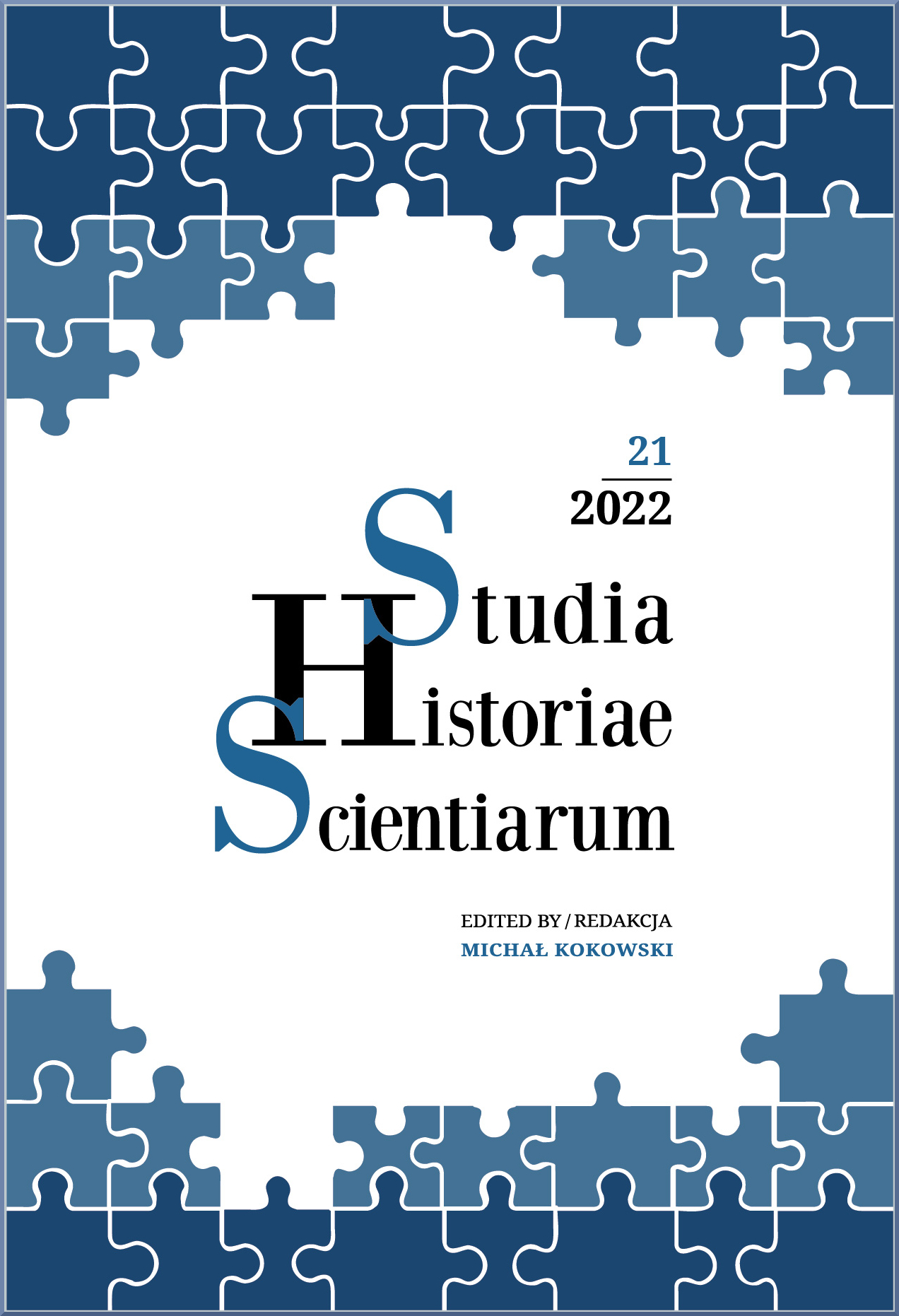Człowiek czy zwierzę? O dyskusjach wokół rodowodu ludzkości w polskim czasopiśmiennictwie drugiej połowy XIX wieku
Human or Animal? On the Discussions around the Ancestry of Humanity in Polish Journals of the Second Half of the 19th Century
Author(s): Katarzyna WrzesińskaSubject(s): History of ideas, Social history, History of Education, 19th Century
Published by: Wydawnictwo Uniwersytetu Jagiellońskiego
Keywords: Charles Darwin; theory of evolution; reception of Darwin’s theses; development of science in Polish lands in the nineteenth century; ancestry of humanity; humans and ape kinship; human races
Summary/Abstract: Celem artykułu jest zobrazowanie dyskusji na ziemiach polskich na temat rodowodu ludzkości, których inspiratorem był Charles Darwin i kontynuatorzy jego myśli. Teoria ewolucji zmieniła sposób myślenia o człowieku, który traktowany był dotąd jako „korona stworzenia”. Główną oś niniejszego tekstu stanowi analiza recepcji prac Darwina poprzez pryzmat sporów nad rodowodem człowieka, tym samym więc rozwój nauki na ziemiach polskich w XIX wieku. Problematyka ta znalazła swoje odzwierciedlenie w naukowej (a także popularyzującej wiedzę) polskiej prasie doby zaborów. Przełom w myśleniu o człowieku polegał na odejściu od koncepcji kreacjonistycznej, uznającej wolę Stwórcy w powstaniu świata oraz na zakwestionowaniu dogmatu niezmienności gatunków. Pod wpływem teorii Darwina, nie bez polemik, wywiedziono wniosek o decydującej roli czynników naturalnych w powstaniu świata ludzkiego i jego zróżnicowania. Najbardziej kontrowersyjną tezą było uznanie pokrewieństwa człowieka z małpą. Budziła ona sprzeciw sfer konserwatywnych. Sam Darwin nie wyprowadzał tak bezpośredniego rodowodu. Natomiast jego następcy kusili się o często kontrowersyjne koncepcje, które również znalazły odzwierciedlenie w polskim czasopiśmiennictwie poprzez recepcję nauki zachodniej. Należy zaznaczyć, że pisma popularnonaukowe były ważnym źródłem informacji ze świata nauki i wywarły znaczący wpływ na postrzeganie teorii ewolucji pośród masowego odbiorcy. Często uprzystępniały one wiadomości na temat teorii Darwina oraz przedstawiały stan badań. Czyniły to w sposób wyważony i kompetentny. Ich autorami byli uznani polscy uczeni. W rezultacie więc, to całokształt dostępnych informacji zadecydował o upowszechnieniu teorii Darwina pośród polskiego społeczeństwa. The aim of the article is to illustrate the discussions in Poland on the ancestry of humanity, which were inspired by Charles Darwin and his followers. The theory of evolution has changed the way of thinking about humans, who were previously treated as the ‘crown of creation’. The core of this text is the analysis of the reception of Darwin’s theses through the prism of the disputes over human’s lineage, and thus the development of science in the nineteenth-century Poland. Those issues were reflected in Polish journals in science and popular science during the partitions. The breakthrough in thinking about humanity consisted in departing from the creationist concept recognizing the will of the Creator in the creation of the world, and in questioning the dogma of the permanence of species. Under the influence of Darwin’s theory, and not without controversy, a conclusion was drawn about the crucial role of natural factors in the creation of human world and its diversity. The most controversial thesis was the acknowledgement of humans’ kinship with the ape. It aroused opposition in conservative spheres. Darwin himself did not introduce such a direct lineage. However, his followers were often tempted to put forward often controversial concepts, which were also reflected in Polish journalism through the reception of western science.It should be noted that popular science magazines were an important source of information from the world of science and had a significant impact on the perception of the theory of evolution by the mass audience. They often simplified the information about Darwin’s theory and presented the stage of the research in a competent way. Recognized Polish scholars were among authors of these journals. As a result, all the different information sources greatly contributed to popularizing Darwin’s theory in the Polish society.
Journal: Studia Historiae Scientiarum
- Issue Year: 2022
- Issue No: 21
- Page Range: 135-180
- Page Count: 46
- Language: Polish

